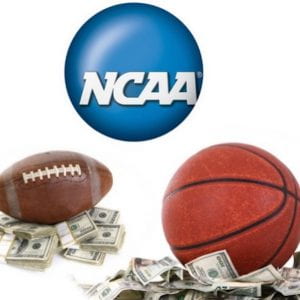Should college athletes get paid? This has been an ongoing question that many would agree with because the NCAA (National Collegiate Athletic Association) is making billions off of these athletes. The Fair Pay to Play Act is a bill that gives businesses the right to use an athlete’s identity for advertisement and lets the athletes receive compensation for it. According to The Washington Post, the new law has created a ton of publicity and has raised questions as to what other states would follow down the road. Professional athletes are in high hopes to see this act be put in effect because this is something that they wish that they had in college. The NCAA has considered working with the state of California to change the way they support athletes and make improvements on a national level through the NCAA’s rule-making process.
While reading about athletes and the struggles they will overcome to pass the bill, this introduced the concept of bargaining which is pursuing a compromise to a disagreement using direct consultations between the parties, while athletes were trying hard to get the NCAA attention, the governor of California Gavin Newsom took matters into his own hands and signed the act because he stated that “Collegiate student-athletes put everything on the line — their physical health, future career prospects and years of their lives to compete. Colleges reap billions from these student-athletes’ sacrifices and success but, in the same breath, block them from earning a single dollar”. The changes will let athletes sign endorsement deals and hire agents to represent them which helps them get more exposure and will create a financial balance between the NCAA and the student-athletes. When the bill becomes effective the colleges in California won’t be able to compete in the NCAA because they will be breaking one of the rules by receiving money and getting endorsement deals, even though the bill will affect the colleges in California, if the NCAA does not change the rule for all schools they will then be violating one of there rules. The student-athletes work very hard and expect more due to their workload and are focused on making sure the NCAA changes there rules to help their need of providing for themselves by paying for food and shelter. The NCAA and student-athletes working together to come to a fair agreement introduce the concept of the integrative agreement which is creating an agreement with both parties that will benefit them long term. Both the NCAA and the student-athletes will benefit from the act because the NCAA will still receive its money from tv endorsements while the athletes will get money from jersey sales, video games, and their likeness. The NCAA will feel like they are losing if they allow the bill to go through because they won’t make as much money as they are now but there views to the general public they will have a better image and will be seen as an organization that takes care of their athletes and wants to see them succeed on and off the field by letting athletes get money from deals which can convince more athletes to participate in collegiate sports. The act is scheduled to be on January 1st, 2023 and will assist in altering the NCAA rules. This law has definitely opened up a ton of new opportunities for athletes to achieve success while being a student-athlete, and has also gained a lot of recognition and has broken barriers to finally begin the process of improving fairness between the NCAA and athletes.
Several massive colleges roughly make 40 million dollars from sports game ticket sales, merchandise sales and tv deals and the athletes don’t benefit from any of it; most of that money is acquired by the school. Although the school isn’t required to pay their student-athletes money when the bill becomes effective they cannot restrict them from getting money from endorsement deals and status. While the head coach makes about 8 million dollars a year the assistant coaches are making about six figures, which creates controversy because the players are the ones who are performing each week and aren’t benefiting from the profits. Many think that just because college athletes are given scholarships that it’s enough to compensate for the amount of work that they do.


